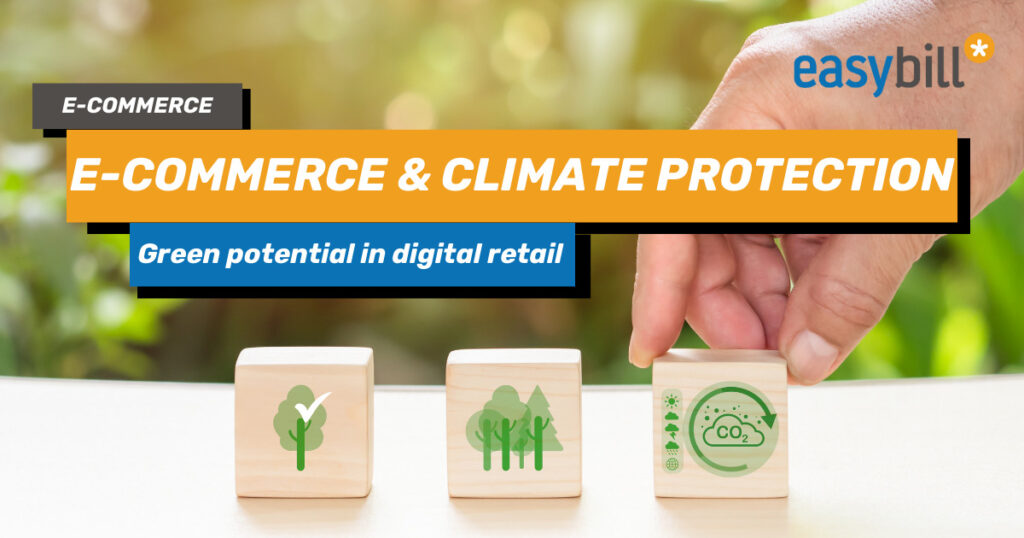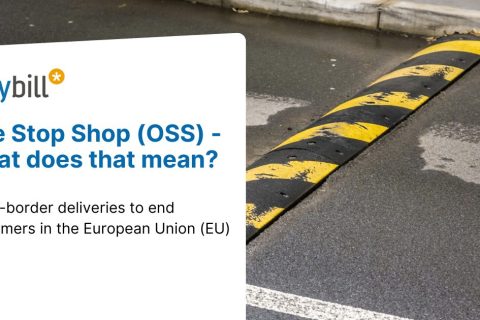
E-commerce and climate protection don’t really go together? Oh yes, but only if you go about it the right way!
Online versus offline: The ecological footprint in retail
Retail has a significant impact on the environment. More and more consumers are paying attention to how sustainable their purchases are. A comparison between online and offline retail shows that e-commerce offers a number of environmentally friendly advantages. By reducing transportation routes and store space, online retailers can reduce their environmental footprint.
Logistics optimization in e-commerce: less is more
A decisive advantage of online retail lies in more efficient logistics. By using modern technologies and algorithms, e-commerce companies can optimize their supply chains, minimize fuel consumption and reduce emissions. Brick-and-mortar retailers can learn from these technologies in order to implement more sustainable logistics practices.
Virtual instead of physical: the importance of digital products
Online retail is benefiting from the increasing popularity of digital products, whether in the form of e-books, music downloads or software licenses. Compared to physical products, digital goods have a lower environmental impact, as no production, packaging or delivery is required. This development illustrates how e-commerce can help to conserve resources and reduce waste.
Sustainability in e-commerce: challenges and opportunities
Despite the positive aspects, there is still room for improvement in the area of climate protection in e-commerce. The increasing number of returns and the challenges of packaging materials are areas in which e-commerce needs to develop more sustainable practices. A critical examination of these challenges opens up opportunities for innovations that can further advance climate protection.
Conclusion: On the way to a greener future in retail
E-commerce undoubtedly has the potential to make a positive contribution to climate protection. Through logistics optimization, digital products and increased environmental awareness, online retailers can take on a pioneering role. At the same time, they should face up to the challenges and continuously look for sustainable solutions. The future of retail lies in a balanced approach in which online and offline retailers work together towards an environmentally friendly future.
Frequently asked questions
about easybill and climate protection
Yes, e-commerce and sustainability are compatible. E-commerce businesses can incorporate sustainable practices such as eco-friendly packaging, renewable energy sources and ethically produced products. By promoting recycling, reducing shipping packaging and supporting local producers, e-commerce platforms can have a positive impact on the environment. It is possible for companies in the
promote sustainable business operations through conscious choices and innovation.
To become a sustainable online store, you should first switch to eco-friendly packaging, prioritize recyclable materials and minimize packaging waste. Secondly, choosing sustainable products is crucial by including ethically produced and environmentally friendly items in your assortment. Finally, you can improve your carbon footprint by switching to renewable energy sources and promoting transportation options with a lower environmental impact.
A sustainable online store can reduce its environmental impact by prioritizing digital platforms for customer service and marketing to minimize paper consumption. It can also implement a take-back system for products to promote recycling and reuse. In addition, the integration of transparent information on the origin and manufacturing processes of products is an important step in promoting sustainability and trust among customers.
easybill is designed to support e-commerce with a wide range of import options. With over 50 connections, online stores as well as marketplaces of all types and sectors can be connected directly so that orders or, in some cases, credit notes can be retrieved automatically.
Read also:
Amazon FBA fee adjustments: launch from February 2024
Supported marketplaces and store systems (german Help center)
The ultimate Shopware checklist for setting up your new Shopware store




